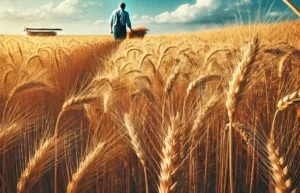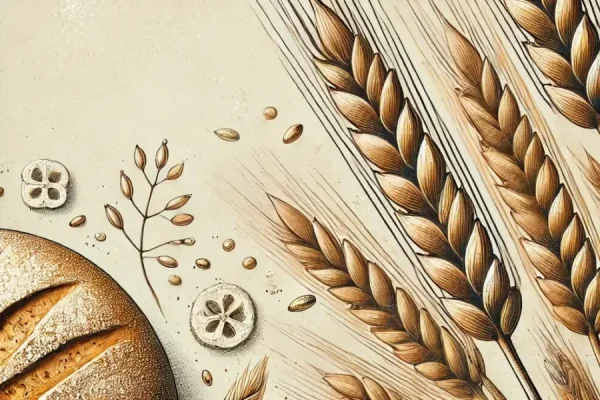Why Wheat Matters: Cultivation, Nutrition, Economic Value, and Global Impact
Wheat is one of the most important crops in the world, serving as a staple food for billions of people. From its cultivation to its nutritional benefits, economic value, and global impact, wheat plays a critical role in shaping our lives. In this blog post, we’ll explore why wheat matters and how it influences agriculture, health, economies, and global food security.
1. The Cultivation of Wheat: Understanding Its Importance as a Global Staple Food Source for Millions
Wheat is one of the oldest cultivated crops, with a history dating back over 10,000 years. Today, it is grown on every continent except Antarctica, making it a truly global crop. Major wheat-producing countries include China, India, Russia, the United States, and France.
Climate and Soil Requirements: Wheat thrives in temperate climates with well-drained soil. It is a versatile crop that can be grown in both winter and spring varieties.
Farming Techniques: Modern farming techniques, including crop rotation, irrigation, and the use of fertilizers, have significantly increased wheat yields.
Sustainability Challenges: Despite its importance, wheat cultivation faces challenges such as climate change, water scarcity, and soil degradation. Sustainable farming practices are essential to ensure its future.
**2. Extensive Nutritional Benefits of Wheat and Its Importance in a Balanced Diet**
Wheat is a powerhouse of nutrition, providing essential nutrients that are vital for human health.
Rich in Carbohydrates: Wheat is a primary source of energy, thanks to its high carbohydrate content.
Dietary Fiber: Whole wheat is rich in dietary fiber, which aids digestion and promotes gut health.
Vitamins and Minerals: Wheat contains B vitamins (like folate and thiamine), iron, magnesium, and zinc, which support overall health.
Protein Source: Wheat gluten provides plant-based protein, making it a key ingredient in vegetarian and vegan diets.
However, it’s important to note that some individuals have gluten intolerance or celiac disease, which requires them to avoid wheat-based products.
3. The Comprehensive Economic Value of Wheat and Its Impact on Global Markets
Wheat is not just a food source; it is also a major driver of the global economy.
Trade Commodity: Wheat is one of the most traded agricultural commodities in the world. Countries like Russia, the United States, and Canada are leading exporters.
Employment Opportunities: Wheat farming, processing, and distribution provide livelihoods for millions of people worldwide.
Economic Stability: For many developing countries, wheat production is a critical component of their agricultural economy, contributing to food security and economic stability.

4. Exploring the Global Impact of Wheat on Economies and Cultures
Wheat’s influence extends far beyond the farm and the dinner table. It has a profound impact on global food systems and geopolitics.
Food Security: Wheat is a staple food for over 35% of the world’s population. It is a key component of diets in regions like South Asia, the Middle East, and North Africa.
Global Trade and Politics: Wheat exports and imports often influence international relations. For example, disruptions in wheat supply due to conflicts or climate events can lead to price spikes and food shortages.
Climate Change and Adaptation: As climate change affects growing conditions, researchers are developing drought-resistant and heat-tolerant wheat varieties to ensure future food security.
The future of wheat depends on innovation and sustainability. Advances in agricultural technology, such as precision farming and genetically modified crops, hold promise for increasing yields and reducing environmental impact. Additionally, promoting sustainable farming practices and addressing climate change are crucial to ensuring that wheat remains a reliable food source for generations to come.
Wheat is more than just a crop; it is a cornerstone of global agriculture, nutrition, and economies. Its cultivation feeds billions, its nutritional benefits support healthy diets, and its economic value drives trade and development. As we face global challenges like climate change and population growth, understanding and appreciating the importance of wheat is more critical than ever.
By supporting sustainable farming practices and investing in agricultural innovation, we can ensure that wheat continues to play a vital role in shaping our world.








